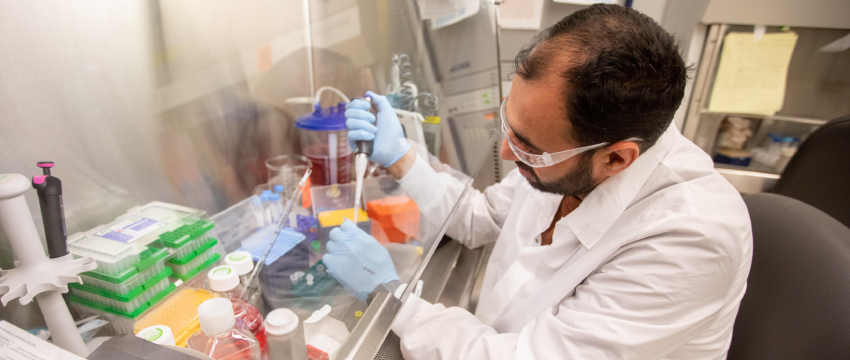
Precision medicine is an approach to treating cancer that is customized to each individual patient. A targeted treatment approach that goes beyond treating the disease, precision medicine at Rutgers Cancer Institute is based on and tailored to multiple aspects of a patient’s health, such as their genetic makeup, environmental factors, and lifestyle choices.
The Role of Genetics in Precision Medicine
An individual’s DNA, gene sequences, and unique genetic history are major factors in precision medicine. Cancer is the result of a genetic malfunction that causes cells to grow and multiply when they shouldn’t, creating tumors. When doctors and researchers on the precision medicine team at Rutgers Cancer Institute can understand a patient’s DNA through analysis and identification of the genetic changes that drive their cancer, they are able to make more accurate diagnoses, and are able to develop specialized treatment options that best target the culprit mutations in the tumor DNA. This results in providing the safest and most effective personalized treatment plans for each individual patient.
Our Ongoing Efforts in Precision Medicine
 Researchers and scientists are working to expand the use of precision medicine to develop novel therapeutics and guide treatment choices today and in the future. Since 2013, research efforts in precision medicine have been visible across multiple research programs at Rutgers Cancer Institute. Read more about our precision medicine research.
Researchers and scientists are working to expand the use of precision medicine to develop novel therapeutics and guide treatment choices today and in the future. Since 2013, research efforts in precision medicine have been visible across multiple research programs at Rutgers Cancer Institute. Read more about our precision medicine research.



